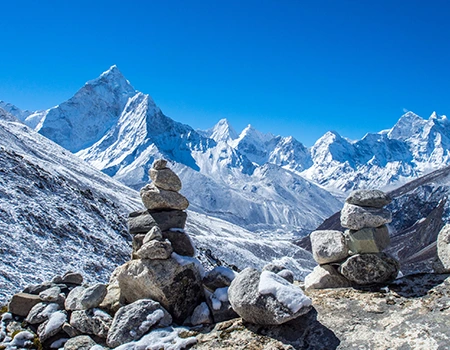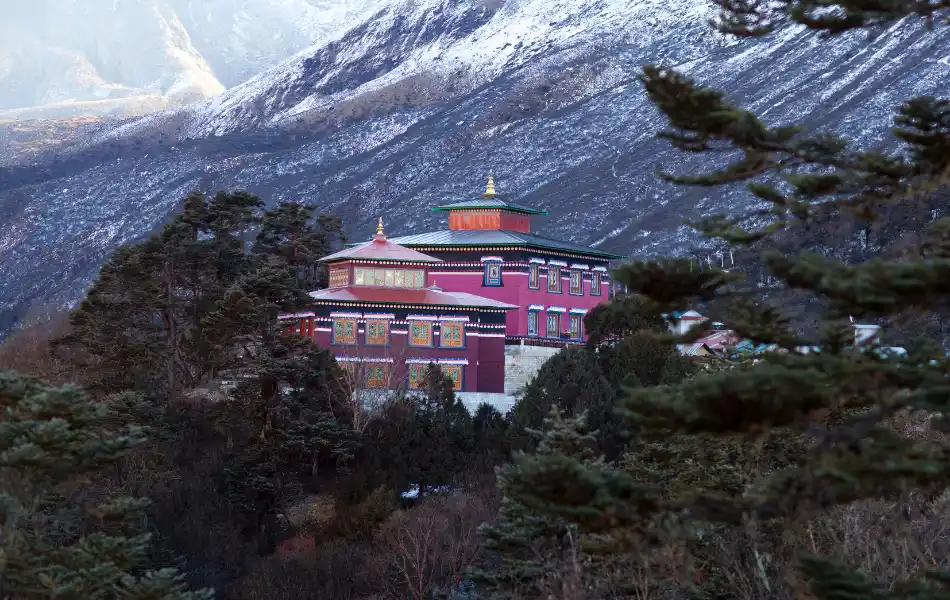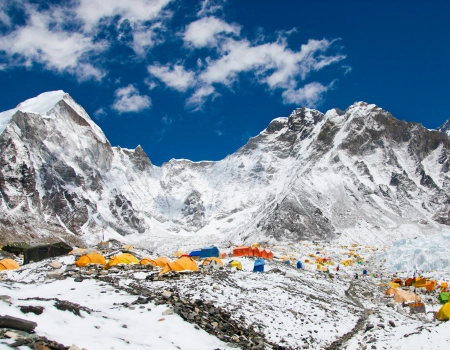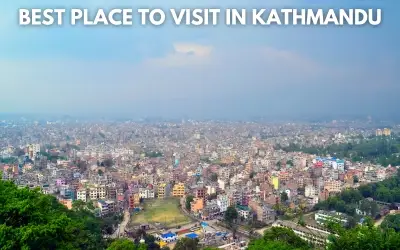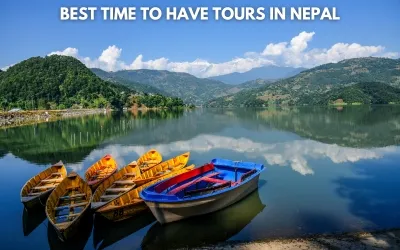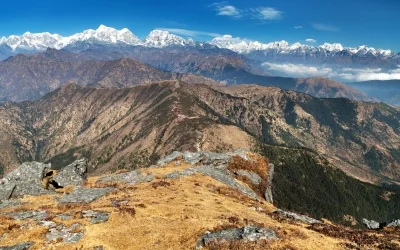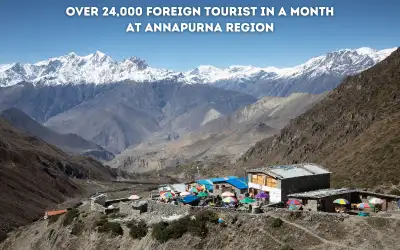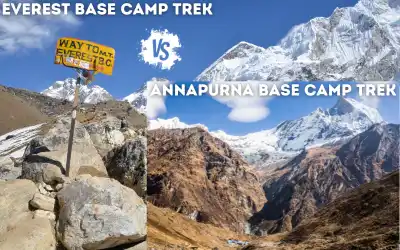Do You Need A Guide For Everest Base Camp Trek?
November 9, 2023Everest Base Camp Trek with Guide
There is no argument that Everest Base Camp is one of the most popular and challenging treks in Nepal. But the question is, can we do solo trekking to Everest Base Camp or do you need a guide for Everest Base Camp Trek?
To make it clear, here is a short answer to the question: No, you can’t trek to Everest Base Camp without a guide. But why? It is because you can’t risk your life trekking to Everest Base Camp without the proper plans for trekking.
In this blog, we will discuss why you need to get an experienced guide for Everest Base Camp as well as the consequences that might occur during solo trekking.
Everest Base Camp Trek: An Overview
Everest Base Camp Trek is one of the most challenging yet rewarding treks in Nepal that takes you all the way to the foot of the world’s tallest mountain peak, Mt. Everest (8848.86m).
It usually takes 13–17 days to complete the trek, starting and ending in the beautiful city of Kathmandu. The journey to Everest Base Camp starts with a short 45-minute scenic flight to Lukla, which is the gateway to the Everest region.
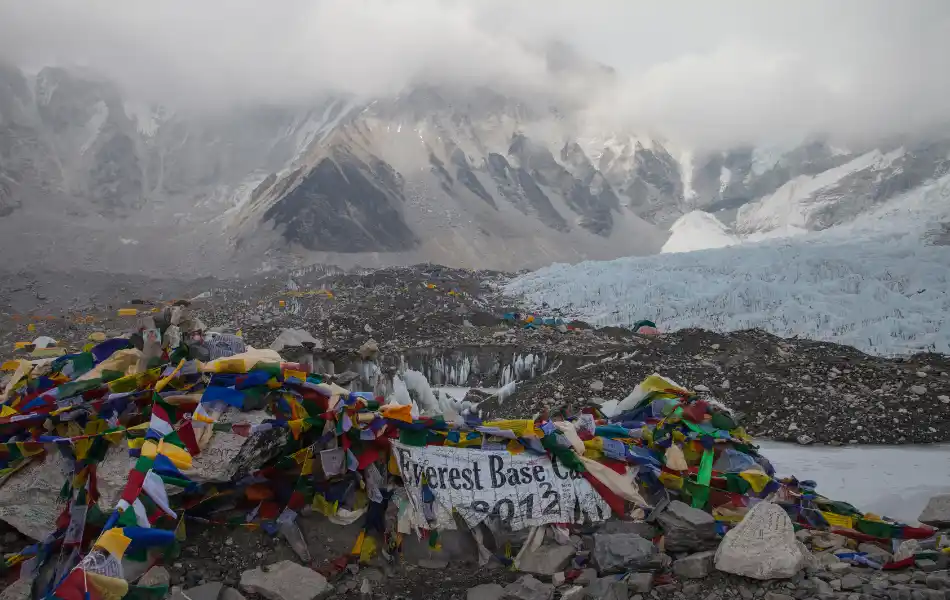
The trekking then starts from Lukla, which goes all the way to the Everest Base Camp. During the trek, you will get to see stunning snow-capped mountain peaks, alpine forests, Himalayan wildlife, Sherpa villages, and different glaciers.
If you choose the standard itinerary via Lukla, Namche Bazaar, Tengboche, Dingboche, Lobuche, Everest Base Camp, and Kala Patthar, then the total trekking distance is around 130 kilometers (80 miles). With this itinerary, the trek takes 13 days.
Do You Need A Guide For Everest Base Camp Trek? | Pros and Cons
Hiring an experienced guide is equally important as planning other necessary things, including the packing list, itineraries, etc. Also, do you know Nepal banned solo-trekking in Nepal starting April 1st, 2023? Because of this, it is necessary to hire a government-licensed guide while trekking in Nepal.
Not just this, here are some pros and cons of hiring a guide for the Everest Base Camp Trek:
Pros of Hiring Guide for Everest Base Camp Trek
- Navigation and Expertise: Experienced guides have extensive knowledge of the Everest Base Camp Trek route, including the trail conditions, landmarks, and altitude changes. They can help you navigate the trails safely and efficiently, especially in challenging sections.
- Altitude expertise: It is important to acclimatize to higher altitudes during the Everest Base Camp Trek. A guide can help you acclimatize to the high altitude and prevent altitude sickness. They know how to pace themselves, stay hydrated, and recognize the signs of altitude sickness.
- Logistical support: Guides handle permits, accommodations, and meals, reducing the logistical burden on trekkers. This allows you to focus on the trek itself.
- Cultural insights: During the trek, there is sure to be a communication barrier between the trekkers and the local people, as the people are not well-versed in foreign languages. With guides, you can get valuable insights into the Sherpa culture and traditions. Also, they can help you communicate with locals and understand the customs of the region.
- Language barrier: If you don’t know Nepali, a guide can help you communicate with locals and arrange accommodation, meals, and transportation.
- Local support: Hiring a guide supports the local economy and helps to preserve the Sherpa culture.
Company and Companionship: If you are trekking solo or prefer companionship, a friendly and communicative guide can be more of a companion than just a guide during the Everest Base Camp Trek.
Cons of Hiring Guide for Everest Base Camp Trek
- Cost: If you are looking for a budget-friendly trek, then the cost can be reduced by hiring a guide. The average cost of hiring a guide for the Everest Base Camp Trek is USD 25 to USD 30 per day. If you are trekking for 13 days, then they will roughly cost USD 370. In addition, at the end of the trek, tips are expected.
- Loss of independence: Trekking with a guide means giving up some of your independence. You will need to follow the guide’s itinerary and may not have as much flexibility to make your own decision.
- Group Dynamics: If you join a group with a guide, you may have to adapt to the group’s preferences and schedules, which might not align with your own.
- Reduced sense of accomplishment: Some trekkers may not feel a sense of accomplishment while trekking with a guide.
Safety and Planning
With or without a guide, having better safety plans is important as the Everest Base Camp Trek holds several risks, including altitude sickness, weather, trails, etc.
Hiring a guide will be efficient, as guides know about safety considerations and logistical planning.
Here are some safety considerations and logistical planning during the Everest Base Camp Trek and how a guide can assist you better:
Safety Considerations
Altitude sickness: Altitude sickness, also called acute mountain sickness (AMS), is one of the most concerning factors at higher altitudes. You won’t know when and how you got the mountain sickness, whose symptoms include headaches, nausea, fatigue, and dizziness.
But, how can a guide enhance safety? The guides are well-versed in the trail, weather and altitude gain. They know when to acclimatize and how to acclimatize. They are well-trained to recognize the early signs of altitude sickness and can recommend appropriate actions, such as rest days or descending to lower altitudes.
Also, the itineraries of the guides include acclimatization days at higher altitudes. It is often in the Namche Bazaar and Dingboche. Also, most of the guides carry a basic first aid kit for emergencies.
Weather conditions: The experienced guide has guided several treks to the Everest Base Camp Trek so they are well aware of the weather conditions. As the weather conditions in the Everest region can be unpredictable, with the potential for sudden change, heavy snowfall, and harsh conditions, it is important to have someone who is well-versed in the weather conditions.
By hiring a guide, you can ensure your safety, as the guides are familiar with the weather patterns and can make informed decisions about whether to continue trekking or seek shelter. Also, they have communication devices to stay updated on weather forecasts and potential hazards.
Emergency Response: In case of a severe emergency, such as a severe case of altitude sickness or a physical injury, having a guide ensures that there is someone who can seek help, provide first aid, and coordinate evacuation if necessary.
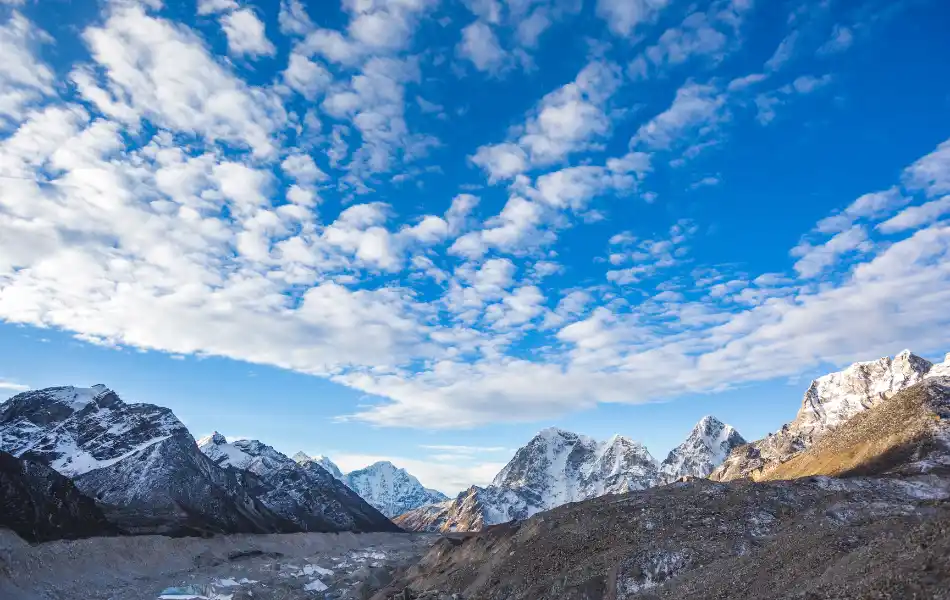
Logistical Planning
- Permits: Trekking in the Everest Region requires obtaining permits. For the Everest Base Camp Trek, you need to get the TIMS (Trekkers’ Information Management System) card, the Sagarmatha National Park Permit and the Khumbu Pasang Rural Municipality Permit. Getting the permits is easier with the help of a guide, as they know how to get the permit and the required documents.
- Itinerary Planning: In order to make the trek safer and more comfortable, planning the right itinerary is important. You can’t rush to different locations just because you can hike. So, an experienced guide can plan a better itinerary that matches your physical fitness and preferences.
- Accommodation and Meals: A guide arranges the accommodation and meals at teahouses along the route, ensuring that you have a place to stay and eat each day. Also, they know about the popular stops that have better facilities and services, which is beneficial. The guide can also suggest nutritious foods that are found at higher altitudes.
- Route Navigation: The Everest Base Camp Trek involves navigating through various trails and villages. Guides are familiar with the routes, making it easier to stay on course and avoid getting lost.
- Communication: For communication, the guides mostly carry mobile phones and if you are trekking in a group, the guide may carry a satellite phone. The other methods of communication during the trek are internet cafes, Wi-Fi and local phones.
Legality of Trekking Without a Guide
As per the March update by the Nepal Tourism Board, solo trekking in Nepal is banned so hiring a government-licensed guide is compulsory for the Everest Base Camp Trek.
On the route during the trekking, there are several checkpoints that are issued for collecting the data of the trekkers trekking in Nepal. If you are trekking without a guide, the checkpoints won’t allow you to pass through, and you will be returned.
Also, getting a guide is necessary to issue the permits. Without the guide, you can’t get permits like TIMS, Sagarmatha National Park Permit, etc. for the Everest Base Camp Trek.
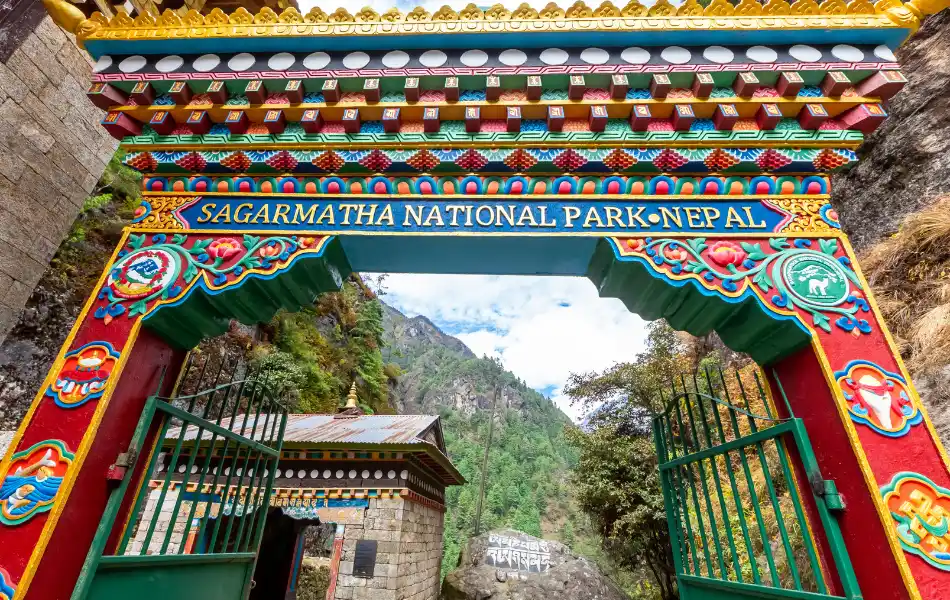
In addition to the safety measures and the legality of trekking without a guide, it has been important to hire an experienced guide while trekking to Everest Base Camp.
Independent Trekking Tips
If you are planning for independent trekking, then here are some of the tips you can consider during your EBC trek:
- Physical fitness: Before the trek, focus on improving your physical fitness. Cardiovascular endurance, strength, and stamina are crucial for tackling the challenging terrain and altitude. Are you a beginner looking for Everest Base Camp Trek? Read this comprehensive guide on Everest Base Camp Trek for beginners.
- Altitude acclimatization: Acclimatize at higher altitudes for a day or longer to adjust to the thin air. Namche Bazaar and Dingboche can be the ideal places for acclimatization. Remember, acclimatization is important to avoid altitude sickness.
- Route Planning: Choose a better route that holds less risk and difficulty. Although there are many routes to reach the EBC, you can choose the general route, which follows Kathmandu – Lukla – Namche Bazaar – Tengboche – Dingboche – Lobuche – Gorakshep – Everest Base Camp – Kala Patthar – Pheriche – Namche Bazaar – Lukla – Kathmandu
- Packing list: Pack light but pack the most necessary gear and equipment. Choose the right gear that will actually help you during the trek. Also, pack clothes for every season, and don’t forget to get better-quality hiking boots. A trekking pole can be of better assistance and you can get lotions that prevent sunburn.
- Permits and Documentation: Get the TIMS, Sagarmatha National Park Permit, and Khumbu Pasang Lhamu Rural Municipality Entry Permit. Make sure you have the necessary identification and documents.
- Navigation tools: Bring a GPS device, compass, or smartphone with offline maps and navigation apps to assist you with route finding. Also, carry a paper map as a backup. You can also ask the local villages about the route if you get confused along the trail.
- Weather forecast: Stay updated on weather forecasts for the region. Trek in the best seasons, i.e., spring and autumn, for stable weather.
- Travel insurance: Purchase comprehensive travel insurance that covers high-altitude trekking and potential medical emergencies. Ensure it has helicopter evacuation coverage.
- Team up: If you are not confident in your navigation skills, consider forming a group with other independent trekkers for added safety and support. Do you know? Blue Lake Adventure offers group joining for the Everest Base Camp Trek. To join one, contact us.
What is the cost of trekking to Everest Base Camp?
The cost of trekking to Everest Base Camp depends on the number of days you choose, the time of the trekking, the services you go for, and the itinerary you plan for.
Click here to find out the cost of trekking to Everest Base Camp, its breakdown and the best tips to save money while trekking.
How do I hire a guide for the Everest Base Camp Trek?
Blue Lake Adventure has always prioritized the trekkers’ basic needs for trekking. So, we have the best guide and porter hiring service from where you can hire a guide to trek to Everest Base Camp Trek.
You can go through the link for the guide porter service in Nepal or contact us through our contact page or email: info@travelgencyinnepal.com to hire a guide of your preference. We have clearly mentioned the price too, which you can check out.
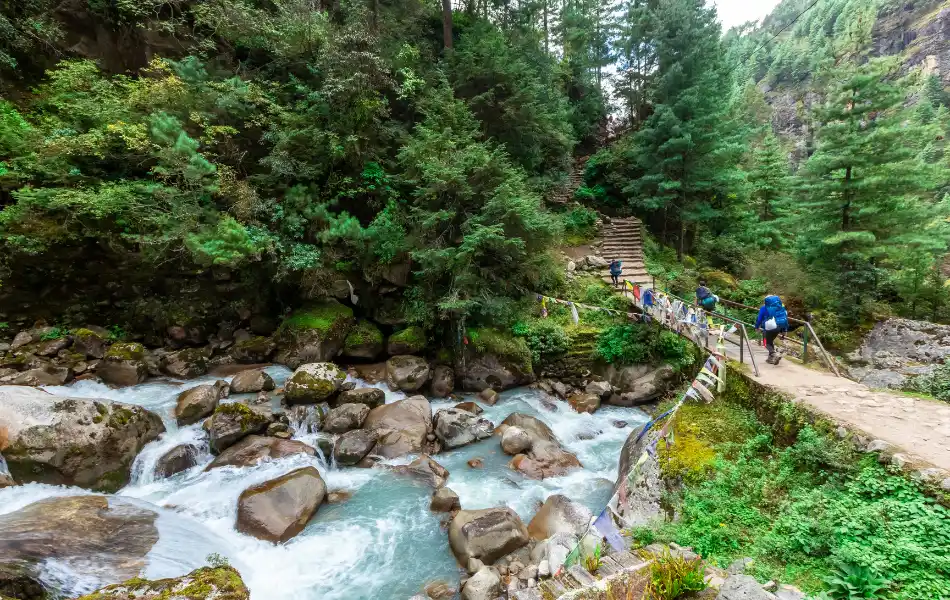
Lastly, is it important to hire a guide for the EBC Trek?
Yes, it is absolutely important to hire a guide for the EBC trek for your own safety and ease during the trek. By hiring a guide, you won’t just follow the safety protocols of the Nepal Tourism Board but also get safety and assistance throughout the trek.
A good hire with experience over the years will be more of a companion to you on your journey to Everest Base Camp.
In conclusion, yes, you need to hire a guide for the Everest Base Camp Trek for your own good and safety. A guide will provide assistance on the route, manage the logistical support, provide safety and help you communicate with the local communities for additional support.
With this, you can just focus on trekking and enjoying the views during the trek without worrying about the management.
Do you want to freely trek to Everest Base Camp without worrying about how to manage it? How do I ensure my own safety? Who will assist me in my difficulties? Get the Everest Base Camp Trek package with Blue Lake Adventure today and enjoy your best time trekking in Nepal.
FAQs
Can you do the Everest Base Camp Trek alone?
No, trekking to Everest Base Camp Trekking alone is not possible, as solo trekking is banned in Nepal. As per April 2023 by the Nepal Tourism Board, solo trekking is banned in Nepal and in order to trek, you must hire a government-licensed guide or book a package with an agency.
Do I need to hire a guide for the Everest Base Camp Trek?
Yes, you need to hire a government-licensed guide for the Everest Base Camp Trek.
What is the cost of hiring a guide for the Everest Base Camp Trek?
The cost of hiring a guide for the Everest Base Camp Trek varies according to the guide but most guides usually charge between USD 25 and USD 30 per day. Also, at the end of the trek, tips are expected.
How do I obtain permits for the Everest Base Camp Trek, can a guide help?
You can obtain the necessary permits with the help of the guide. While getting the necessary permits, like the TIMS card, the Sagarmatha National Park Permit, and the Khumbu Pasang Lhamu Rural Municipality Entry Permit, you need to have the name of the government-registered guide.
What are the advantages of trekking with a guide to Everest Base Camp?
You can get different advantages of trekking with a guide to Everest Base Camp, including safety precautions like altitude sickness, acclimatization, emergency support, and logistical support like managing permits, accommodations, meals, itineraries, etc.


